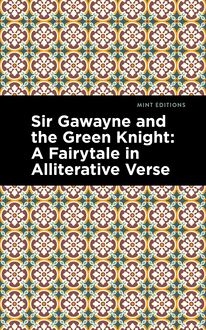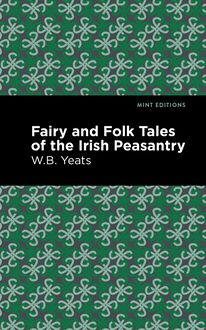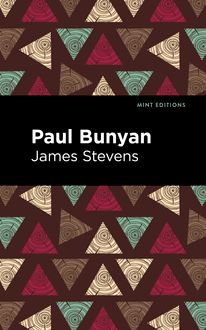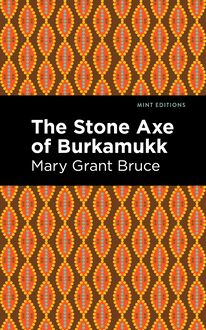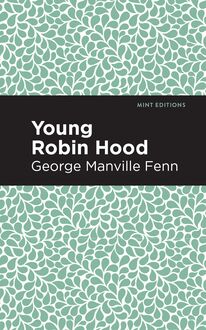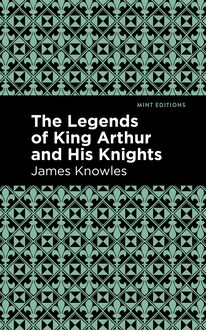-
 Univers
Univers
-
 Ebooks
Ebooks
-
 Livres audio
Livres audio
-
 Presse
Presse
-
 Podcasts
Podcasts
-
 BD
BD
-
 Documents
Documents
-
- Cours
- Révisions
- Ressources pédagogiques
- Sciences de l’éducation
- Manuels scolaires
- Langues
- Travaux de classe
- Annales de BEP
- Etudes supérieures
- Maternelle et primaire
- Fiches de lecture
- Orientation scolaire
- Méthodologie
- Corrigés de devoir
- Annales d’examens et concours
- Annales du bac
- Annales du brevet
- Rapports de stage
La lecture à portée de main
Vous pourrez modifier la taille du texte de cet ouvrage
Découvre YouScribe en t'inscrivant gratuitement
Je m'inscrisDécouvre YouScribe en t'inscrivant gratuitement
Je m'inscrisEn savoir plus
Vous pourrez modifier la taille du texte de cet ouvrage
En savoir plus

Description
“Mr. Fenn is in the front rank of writers of stories for boys”-Liverpool Mercury
“Mr. Fenn’s books are among the best, if not altogether the best, of the stories for boys.” -Pictorial World
George Manville Fenn’sYoung Robin Hood (1899)is an enchanting story for younger readers about a boy who is lost in the woods and is taken in by Robin Hood and his merry men. This timeless and charming tale of adventure, friendship, and archery emboldens the positive virtues of kindness, charity, and forgiveness.
When the young boy Robin, the son of the Nottingham sheriff, is passing through Sherwood Forest with a servant and his pack mules they are suddenly ambushed by a gang of green-clad hooligans. Robin’s reckless caretaker, in the chaos, leaves the boy alone in the forest, deserted and frightened. When Robin is once again confronted by a bully in the woods he is swiftly rescued by none other than Robin Hood and his gang, including the beloved Little John and Maid Marian. They take the boy into their care, where he is taught the ways of the forest, explores the terrain, and learns the art of archery. For all fans of the legend of Robin Hood and his merry men, Young Robin Hood<\I> is an essential read.
With an eye-catching new cover, and professionally typeset manuscript, this edition of Young Robin Hood is both modern and readable.
Sujets
Informations
| Publié par | Mint Editions |
| Date de parution | 01 décembre 2020 |
| Nombre de lectures | 0 |
| EAN13 | 9781513267012 |
| Langue | English |
| Poids de l'ouvrage | 1 Mo |
Informations légales : prix de location à la page 0,0250€. Cette information est donnée uniquement à titre indicatif conformément à la législation en vigueur.
Extrait
Young Robin Hood
George Manville Fenn
Young Robin Hood was first published in 1899.
This edition published by Mint Editions 2020.
ISBN 9781513266572 | E-ISBN 9781513267012
Published by Mint Editions®
minteditionbooks .com
Publishing Director: Jennifer Newens
Project Manager: Gabrielle Maudiere
Design & Production: Rachel Lopez Metzger
Typesetting: Westchester Publishing Services
C ONTENTS Chapter 1 Chapter 2 Chapter 3 Chapter 4 Chapter 5 Chapter 6 Chapter 7 Chapter 8
Chapter 1
“Sit still, will you? I never saw such a boy: wriggling about like a young eel.”
“I can’t help it, David,” said the little fellow so roughly spoken to by a sour-looking serving man; “the horse does jog so, and it’s so slippery. If I didn’t keep moving I should go off.”
“You’ll soon go off if you don’t keep a little quieter,” growled the man angrily, “for I’ll pitch you among the bushes.”
“No, you won’t,” said the boy laughing. “You daren’t do so.”
“What! I’ll let you see, young master. I want to know why they couldn’t let you have a donkey or a mule, instead of hanging you on behind me.”
“Aunt said I should be safer behind you,” said the boy; “but I’m not. It’s so hard to hold on by your belt, because you’re so ______ ”
“Look here. Master Robin, I get enough o’ that from the men. If you say I’m so fat, I’ll pitch you into the first patch o’ brambles we come to.”
“But you are fat,” said the boy; “and you dare not. If you did my father would punish you.”
“He wouldn’t know.”
“Oh! yes he would, David,” said the little fellow, confidently; “the other men would tell him.”
“They wouldn’t know,” said the man with a chuckle. “I say, aren’t you afraid?”
“No,” said the boy. “What of, tumbling off? I could jump.”
“’Fraid of going through this great dark forest?”
“No. What is there to be afraid of?”
“Robbers and thieves, and all sorts of horrid things. Why, we might meet Robin Hood and his men.”
“I should like that,” said the boy.
“What?” cried the serving man, and he looked round at the great oak and beech trees through which the faintly marked road lay, and then forward and backward at the dozen mules, laden with packs of cloth, every two of which were led by an armed man. “You’d like that?”
“Yes,” said the boy. “I want to see him.”
“Here’s a pretty sort of a boy,” said the man. “Why, he’d eat you like a radish.”
“No, he wouldn’t,” said the boy, “because I’m not a bit like a radish; and I say, David, do turn your belt round.”
“Turn my belt round?” said the man, in astonishment. “What for?”
“So as to put the sword the other side. It does keep on banging my legs so. They’re quite bruised.”
“It’s me that’ll be bruised, with you punching and sticking your fisties into my belt. Put your legs on the other side. I can’t move my sword. I might want it to fight, you know.”
“Who with?” asked the boy.
“Robbers after the bales o’ cloth. I shall be precious glad to get ’em safe to the town, and be back home again with whole bones. Sit still, will you! Wriggling again! How am I to get you safe home to your father if you keep sidling off like that? Want me to hand you over to one of the men?”
“Yes, please,” said the boy, dolefully.
“What? Don’t want to ride on one of the mules, do you?”
“Yes, I do,” said the boy. “I should be more comfortable sitting on one of the packs. I’m sure aunt would have said I was to sit there, if she had known.”
“Look here, young squire,” said the man, sourly; “you’ve too much tongue, and you know too much what aren’t good for you. Your aunt, my old missus, says to me:
“ ‘David,’ she says, ‘you are to take young Master Robin behind you on the horse, where he can hold on by your belt, and you’ll never lose sight of him till you give him into his father the Sheriff’s hands, along with the bales of cloth; and you can tell the Sheriff he has been a very good boy during his visit’; and now I can’t.”
“Why can’t you?” said the boy, sharply.
“’Cause you’re doing nothing but squirming and working about behind my saddle. I shall never get you to the town, if you go on like this.”
The boy puckered up his forehead, and was silent as he wondered whether he could manage to sit still for the two hours which were yet to elapse before they stopped for the night at a village on the outskirts of Sherwood Forest, ready to go on again the next morning.
“I liked stopping with aunt at Ellton,” said the little fellow to himself, sadly, “and I should like to go again; but I should like to be fetched home next time, for old David is so cross every time I move, and ______ ”
“Look here, young fellow,” growled the man, half turning in his saddle; “if you don’t sit still I’ll get one of the pack ropes and tie you on, like a sack. I never see such a fidgety young elver in my ______ Oh, look at that!”
The man gave a tug at his horse’s rein; but it was not needed, for the stout cob had cocked its ears forward and stopped short, just as the mules in front whisked themselves round, and the men who drove them began to huddle together in a group.
For all at once the way was barred by about a dozen men in rough weather-stained green jerkins, each with a long bow and a sheaf of arrows at his back, and a long quarter-staff in his hand.
David, confidential servant and head man to Aunt Hester, of the cloth works at Ellton, looked sharply round at the half-dozen heavily-laden mules behind him; and beyond them he saw another dozen or so of men, and more were coming from among the trees to right and left.
“Hoi! all of you,” cried David to his men. “Swords out! We must fight for the mistress’s cloth.”
As he spoke, he seized the hilt of his sword and began to tug at it; but it would not leave its sheath, and all the while he was kicking at his horse’s ribs with his heels, with the result that the stout cob gave a kick and a plunge, lowered its head, and dashed off at a gallop, with David holding on to the pommel.
Two of the men made a snatch at the reins, but they were too late, and turned to the mule-drivers, who were following their leader’s example and trying to escape amongst the trees, leaving the mules huddled together, squealing and kicking in their fright.
Young Robin just saw two packages roll to the ground as the cob dashed off; then he was holding on with all his might to old David’s belt as the cob galloped away with half-a-dozen of the robbers trying to cut it off.
Then the little fellow felt that he was being jerked and knocked and bruised, as the horse tore along with David, head and neck stretched out. There was a rush under some low boughs, and another rush over a patch of brambles and tall bracken; then the cob made a bold dash at a dense mass of low growth, when there was a violent jerk as he made a bound, followed by a feeling as if the boy’s arms were being torn out at the shoulders, a rush through the air, a heavy blow, and a sensation of tearing, and all was, giddiness and pain.
Chapter 2
It is not nice to be pitched by a man off a horse’s back on to the top of your head.
That is what young Robin thought as he sat up and rubbed the place, looking very rueful and sad.
But he did not seem to be entirely alone there in the dense forest, for there was another young robin, with large eyes and a speckled jacket, sitting upon a twig and watching him intently. Robin could think of nothing but himself, his aching head, and his scratches, some of which were bleeding.
Then he listened, and fancied that he heard shouting, with the trampling of mules and the breaking of twigs.
But he was giddy and puzzled, and after struggling through some undergrowth he sat down upon what looked like a green velvet cushion; but it was only the moss-covered root of a great beech tree, which covered him like a roof and made all soft and shady.
And now it was perfectly quiet, and it seemed restful after being shaken and jerked about on the horse’s back. Robin was tired too, and the dull, half-stupefied state of his brain stopped him from being startled by his strange position. His head ached though, and it seemed nice to rest it, and he stretched himself out on the moss and looked up through the leaves of the great tree, where he could see in one place the ruddy rays of the evening sun glowing, and then he could see nothing—think nothing.
Then he could think, though he still could not see, for it was very dark and silent and strange, and for some minutes he could not understand why he was out there on the moss instead of being in Aunt Hester’s house at Elton, or at home in Nottingham town.
But he understood it all at once, recollecting what had taken place, and for a time he felt very, very miserable. It was startling, too, when from close at hand someone seemed to begin questioning him strangely by calling out:
“Whoo-who-who-who?”
But at the end of a minute or two he knew it was an owl, and soon after he was fast asleep and did not think again till the sun was shining brightly, and he sat up waiting for old David to come and pull him up on the horse again.
Robin waited, for he was afraid to move.
“If I begin to wander about,” he said to himself, “David will not find me, and he will go home and tell father I’m lost, when all the time he threw me off the horse because he was afraid and wanted to save himself.”
So the boy sat still, waiting to be fetched. The robin came and looked at him again, as if wondering that he did not pull up flowers by the roots and dig, so that worms and grubs might be found, and finally flitted away.
Then all at once there was the pattering of feet, and half-a-dozen deer came into sight, with soft dappled coats, and one of them with large flat pointed horns; but at the first movement Robin made they dashed off among the trees in a series of bounds.
Then there was another long pause, and Robin was thinking how hungry he was, when something dropped close to him with a loud rap, and looking up sharply, he caught sight of a little keen-eyed bushy-tailed animal, looking dow
-
 Univers
Univers
-
 Ebooks
Ebooks
-
 Livres audio
Livres audio
-
 Presse
Presse
-
 Podcasts
Podcasts
-
 BD
BD
-
 Documents
Documents
-
Jeunesse
-
Littérature
-
Ressources professionnelles
-
Santé et bien-être
-
Savoirs
-
Education
-
Loisirs et hobbies
-
Art, musique et cinéma
-
Actualité et débat de société
-
Jeunesse
-
Littérature
-
Ressources professionnelles
-
Santé et bien-être
-
Savoirs
-
Education
-
Loisirs et hobbies
-
Art, musique et cinéma
-
Actualité et débat de société
-
Actualités
-
Lifestyle
-
Presse jeunesse
-
Presse professionnelle
-
Pratique
-
Presse sportive
-
Presse internationale
-
Culture & Médias
-
Action et Aventures
-
Science-fiction et Fantasy
-
Société
-
Jeunesse
-
Littérature
-
Ressources professionnelles
-
Santé et bien-être
-
Savoirs
-
Education
-
Loisirs et hobbies
-
Art, musique et cinéma
-
Actualité et débat de société
- Cours
- Révisions
- Ressources pédagogiques
- Sciences de l’éducation
- Manuels scolaires
- Langues
- Travaux de classe
- Annales de BEP
- Etudes supérieures
- Maternelle et primaire
- Fiches de lecture
- Orientation scolaire
- Méthodologie
- Corrigés de devoir
- Annales d’examens et concours
- Annales du bac
- Annales du brevet
- Rapports de stage

